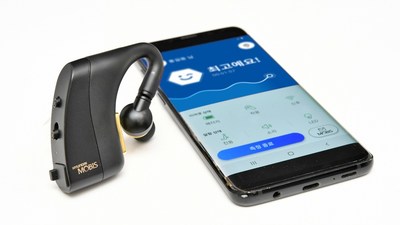
Hyundai has developed what may be the first advanced driver assistance system (ADAS) that monitors brain waves, the company announced July 21.
The new system from Hyundai Mobis — Hyundai’s car parts subsidiary and the world’s seventh largest automotive supplier — is dubbed “M. Brain.” Developed after three years of research and development, the system detects brain waves using earpiece sensors.
M. Brain uses machine learning techniques to interpret the brain waves of drivers and identify their state. The aim is to reduce accidents caused by drowsy driving or negligence, the company noted.
M.Brain can be linked with a smartphone app to provide notifications that a driver is losing attention. The device can provide alerts a number of other ways, such as light from LEDs around a driver’s seat, vibrating seats, and sounds through headrest speakers.
The new system is the latest effort from Hyundai Mobis to apply healthcare technology to the automotive industry. For example, in 2019, the company developed an eye-tracking driver state warning system, and in 2020 introduced a radar system to help prevent infants from getting stuck in a car’s back seats.
Other automakers have sought to monitor life signs as well. For example, in 2011, Ford revealed a heart rate monitoring seat, which could potentially diagnose conditions drivers were previously unaware they had, or provide alerts of imminent heart attacks.
Hyundai Mobis will test M. Brain with public bus transportation services in Gyeonggi, the most populous province in Korea. It aims to later expand the device’s scope to smart cities and purpose-built vehicles.

